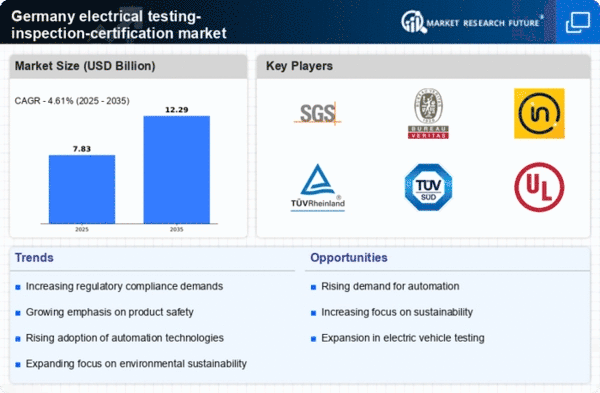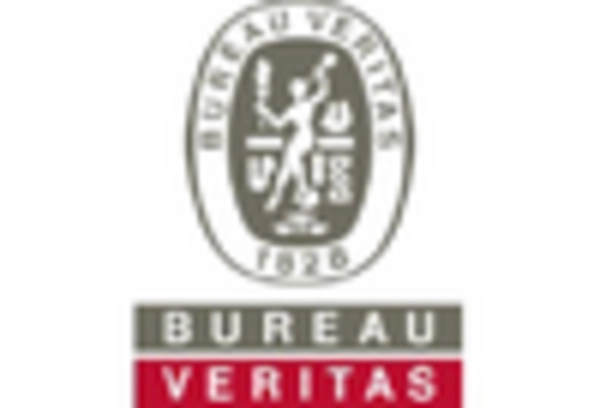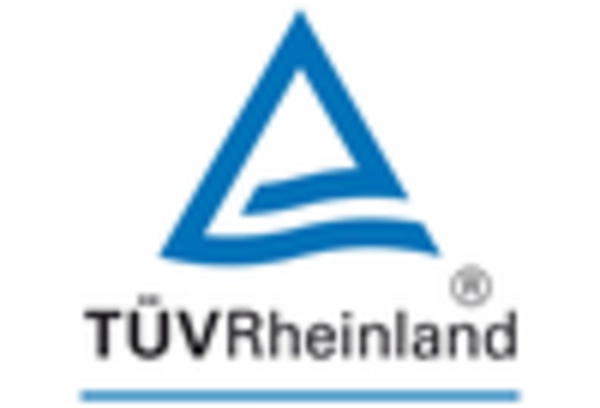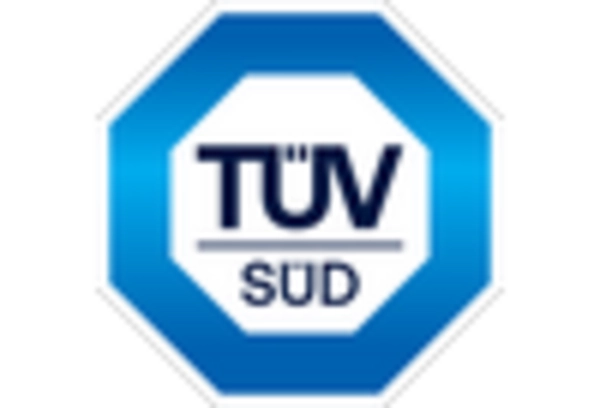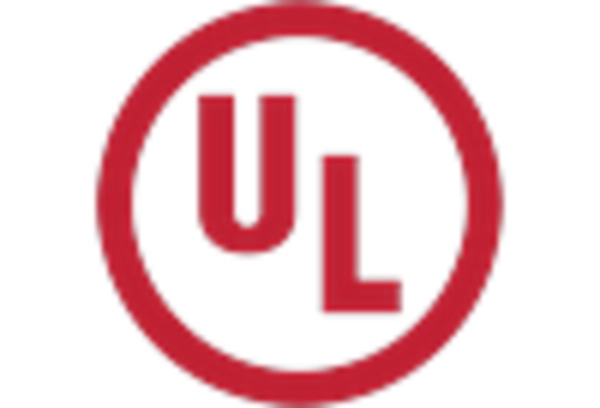Rising Demand for Quality Assurance
The electrical electronics-testing-inspection-certification market in Germany experiences a notable increase in demand for quality assurance across various sectors. Industries such as automotive, consumer electronics, and industrial manufacturing are prioritizing compliance with stringent quality standards. This trend is driven by the need to enhance product reliability and safety, which is crucial for maintaining consumer trust. In 2024, the market for quality assurance services in Germany is projected to reach approximately €1.5 billion, reflecting a growth rate of around 8% annually. As companies strive to meet regulatory requirements and consumer expectations, the electrical electronics-testing-inspection-certification market plays a pivotal role in facilitating these efforts.
Consumer Electronics Market Expansion
The expansion of the consumer electronics market in Germany significantly influences the electrical electronics-testing-inspection-certification market. With the increasing adoption of smart devices and IoT technologies, manufacturers are under pressure to ensure their products meet rigorous testing and certification standards. The consumer electronics sector is projected to grow by 9% annually, leading to heightened demand for testing services to verify product safety and performance. This growth presents a substantial opportunity for the electrical electronics-testing-inspection-certification market, as companies seek to differentiate their offerings through compliance with established standards, thereby enhancing consumer confidence.
Regulatory Compliance and Standards Evolution
The evolution of regulatory compliance and standards significantly impacts the electrical electronics-testing-inspection-certification market in Germany. As regulations become more stringent, companies are compelled to adapt their processes to meet new requirements. This shift is particularly evident in sectors such as telecommunications and energy, where compliance with safety and environmental standards is paramount. The market is projected to grow by 7% annually as businesses invest in certification services to ensure adherence to these evolving regulations. The electrical electronics-testing-inspection-certification market thus serves as a critical partner for organizations navigating the complexities of compliance, helping them mitigate risks associated with non-compliance.
Technological Advancements in Testing Equipment
Technological advancements significantly influence the electrical electronics-testing-inspection-certification market in Germany. The introduction of sophisticated testing equipment, such as automated testing systems and advanced diagnostic tools, enhances the efficiency and accuracy of inspections. These innovations enable companies to conduct more comprehensive evaluations of their products, ensuring compliance with regulatory standards. The market for testing equipment is expected to grow by 10% annually, driven by the increasing complexity of electronic devices and the need for precise testing methodologies. Consequently, the electrical electronics-testing-inspection-certification market is poised to benefit from these advancements, as businesses seek to adopt cutting-edge technologies to improve their testing processes.
Increased Investment in Renewable Energy Technologies
The push for renewable energy technologies in Germany creates a burgeoning opportunity for the electrical electronics-testing-inspection-certification market. As the country transitions towards sustainable energy sources, the demand for testing and certification of renewable energy systems, such as solar panels and wind turbines, is on the rise. In 2025, the market for renewable energy certification services is anticipated to reach €800 million, reflecting a growth rate of 12% annually. This trend underscores the importance of ensuring that renewable technologies meet safety and performance standards, positioning the electrical electronics-testing-inspection-certification market as a vital component in the energy sector's transformation.


